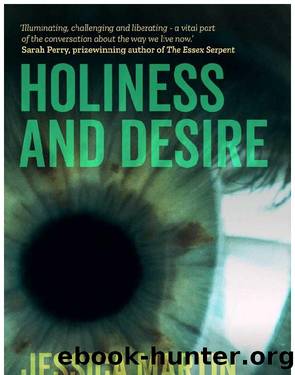Holiness and Desire by Unknown

Author:Unknown
Language: eng
Format: epub
Published: 2021-06-14T00:00:00+00:00
The time that is to come is not;
How can it then be mine?
The present momentâs all my lot;
And that, as fast as it is got,
Phyllis, is only thine.
Then talk not of inconstancy,
False hearts, and broken vows;
If I, by miracle, can be
This live-long minute true to thee,
âTis all that Heavân allows.25
This is a marvellous, despairing poem exerting all its skill to say something untrue: that people live neither in the past nor in the future. Rochester makes âthis live-long minuteâ into the only real choice by relinquishing his hold on everything else: all he has ever been, all he might be. His first move is to cancel the âmyâ of âmy past lifeâ and announce his history to be possessed by time the robber, flying into unreachableness with the past in its grip. The speaker is left with nothing: he wakes like one mugged, with the rags of memory only the âimagesâ of âtransitory dreamsâ. As for the future, the speaker denies it any reality at all, either as a form of imaginative potential or as a space for the expression of faith: âHow can it then be mine?â
Rochesterâs poem therefore forbids hope, which relies on imagining what might become. The living resonances of a personal history are also torn away, because he says memory is a âstoreâ of âimagesâ of what was once, and is no longer, real. The sense of memory as an activity that lives in and changes the present is nowhere. Its elegant structure makes the verse close, claustrophobic: âthis live-long minuteâ. Though it promises to turn a minute into a lifetime, it actually reduces a lifetime to a minute.
And it hints that even a minute is becoming too long a time to retain, its integrity only intact by âmiracleâ. The prison walls of the poem press closer and closer together, threatening to crush our hero altogether, as in a Scooby-Doo cartoon, to the point where he loses his grip on even the smallest unit of time and can offer nothing to anybody at all. That point is coming, somewhere a little beyond the end of the poemâs last line. The outcome of existentialism is advanced dementia. No one can really live like this. Hedonists who donât possess Rochesterâs grim wit just havenât paused to consider the logic of their position.
So is ecstasy a cheat? Not exactly. Rare glimpses of the joy beyond the rule of time matter very much indeed, and continue to do the work of meaning within both memory and longing. But ecstasy doesnât subsist on its own, and it canât be loved for its own sake. Worshipping sensation is not the same thing as meeting, or recognizing, or communicating, or loving, or caring. It doesnât, in the end, involve any other being than the self. Whether the sensation you worship is defined as sexual or as spiritual, if it begins and ends in self then it is bound to disappoint. Eternity is in love with the productions of time,26 and we are made in order to practise our loves upon them, rather than to curve inward.
Download
This site does not store any files on its server. We only index and link to content provided by other sites. Please contact the content providers to delete copyright contents if any and email us, we'll remove relevant links or contents immediately.
What Is the Gospel? (Foreword by D. A. Carson) by Greg Gilbert(990)
Jesus in Me by Anne Graham Lotz(967)
Daily Strength: Devotions for Bible Believing Study by Douglas Stauffer & Andrew Ray & Rick Quatro(897)
Christian Ethics by Wilkens Steve;(859)
The Practice Is the Path by Tias Little(822)
New Morning Mercies by Tripp Paul David(808)
Cleaning Up Your Mental Mess by Dr. Caroline Leaf(740)
Veritas: A Harvard Professor, a Con Man and the Gospel of Jesus's Wife by Ariel Sabar(734)
Greatest Mystery in the World by Og Mandino(667)
The Creative Call by Janice Elsheimer(601)
No More Christian Nice Guy by Paul Coughlin(589)
Our Appointment with Life by Thich Nhat Hanh(573)
Monastic Archaeology by Unknown(568)
2084 by John C. Lennox(557)
This One Wild and Precious Life by Sarah Wilson(544)
Jesus--Awesome Power, Awesome Love (Discover 4 Yourself® Inductive Bible Studies for Kids) by Kay Arthur(534)
The Catholic Verses: 95 Bible Passages That Confound Protestants by Dave Armstrong(525)
The Duties of Parents by J.C. Ryle(518)
The Tale of the Tardy Oxcart (Swindoll Leadership Library) by Swindoll Charles R(507)
